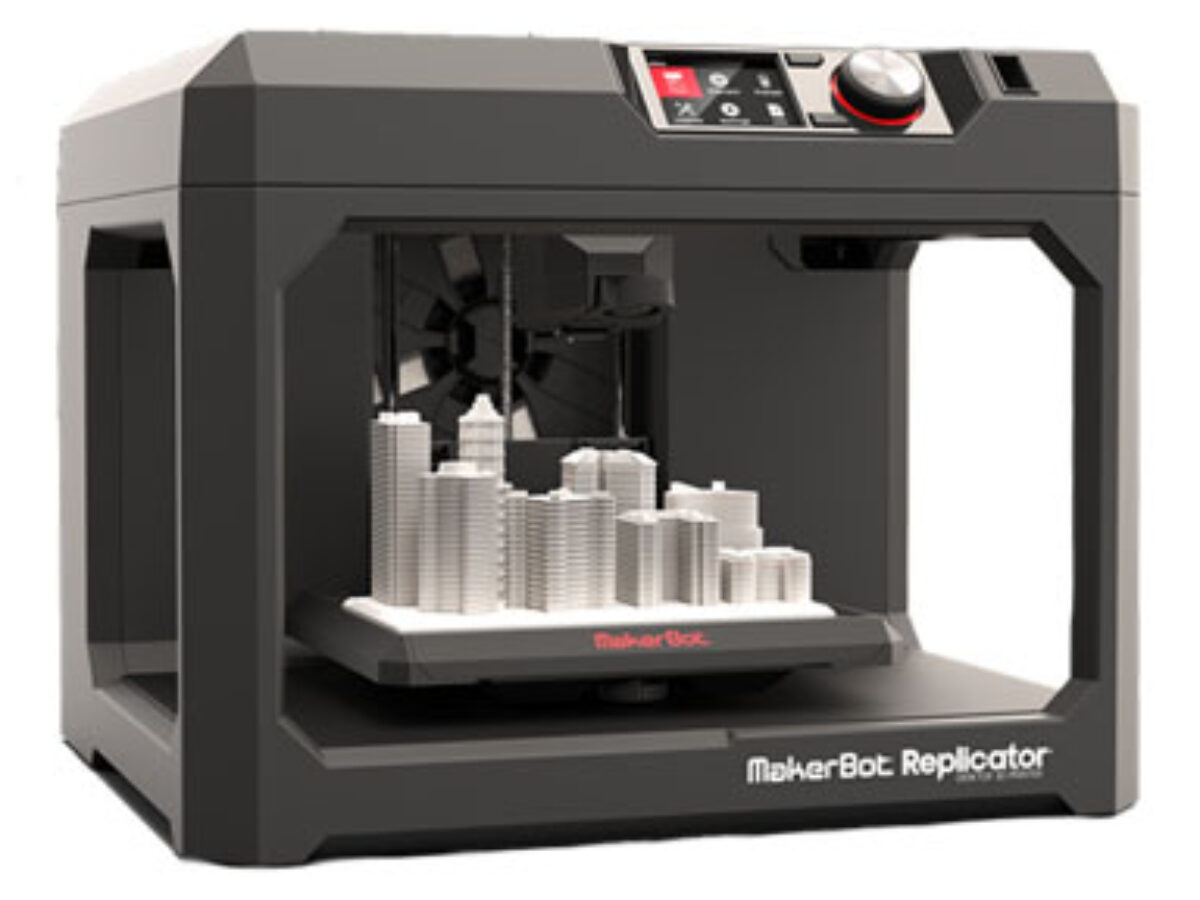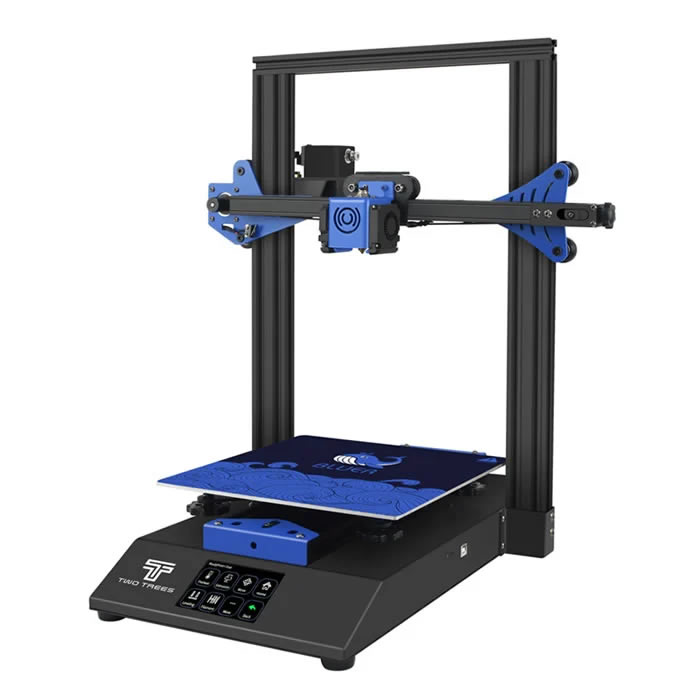Compare Replicator Plus vs Bluer
Comparison between the best 3D printers
Choose the best 3D printer at the best price. The cheapest 3D printers are here.
Buy a 3D printer here with 3D Fila.
 |
 |
|
| Model | Replicator Plus |
Bluer |
| Printing Material | Filament | Filament |
| Buy Filament for Makerbot Replicator Plus | Buy Filament forTwoTrees Bluer | |
| Estimated price | $2099,00 | $169,00 |
| Manufacturer | Makerbot | TwoTrees |
| Release Year | 2016 | 2019 |
| Print Volume [mm] | 165x295x195 | 230x230x280 |
| Printer Size [mm] | 410x528x441 | 400x410x520 |
| Weight [kg] | 18,3 | 8 |
| Power Loss Recovery | YES | YES |
| Enclosed printer | NO | NO |
| Bed Leveling | Automatic | Manual |
| Filament End Sensor | YES | YES |
| Bed type | Heated | |
| Power supply system | Bowden | Bowden |
| Standard nozzle | 0,4 | 0,4 |
| Maximum Nozzle Temperature [°C] | 230 | 260 |
| Maximum Bed Temperature [°C] | 100 | |
| Maximum printing speed [mm/s] | 150 | 200 |
| Filament holder | YES | YES |
| Camera for supervision | YES | YES |
| Recommended filaments | PLA | PLA, PETG |
| Recommended slicers | MakerBot Print Software | Cura, Simplify, Slic3r |
| Maximum Resolution [mm] | 0,1 | 0,1 |
| Processor | MKS Robin Nano V1.2 + TMC2208 | |
| Display | Touchscreen TFT 3,5'' | |
| Power Supply | 110/220V / 240W | 240W |
| Connectivity | USB / Wi-Fi | SD / USB |
| Operating systems | Windows, Mac, Linux | Windows, Mac, Linux |
| Date of registration in the system | 2022-11-15 | 2021-09-20 |
| Release date | 2016 | 2019 |
| Extra features | The Replicator Plus printer is easy to use and has very good print quality. Its software is user-friendly and powerful, with USB, Ethernet, Wi-Fi and support for printing via pen drive. With a safe design for an open frame printer, it is relatively quiet. The Smart Extruder+ detects filament end and pauses printing automatically, in addition to notifying via apps. It has a large print volume, with a non-heated and coated print bed for easy removal of parts. It also has a webcam for remote monitoring of prints. | The Bluer offers interesting features such as automatic bed leveling, a 3.5-inch color touchscreen for easy operation, and a filament sensor to prevent print failures. It has a robust metal extruder and a generous 230 x 230 x 280 mm print volume, suitable for a variety of projects. The community mentions improvements made by Two Trees based on feedback, increasing its reliability. |
| Support for multiple colors and materials (AMS and CFS) | NO | NO |
Notes * |
||
| Cost-benefit | 6 / 10 | 7 / 10 |
| Hardware | 2.5 / 10 | 2 / 10 |
| Tela | . | . |
| Print volume | 3 / 10 | 3 / 10 |
| Performance | 1 / 10 | 2 / 10 |
Conclusion |
| In comparing the MakerBot Replicator Plus and the TwoTrees Bluer, several key differences and features stand out that may influence the decision for potential buyers. The Replicator Plus, while significantly more expensive, is designed for ease of use and delivers high-quality prints. It boasts a larger print volume, a user-friendly interface, and several connectivity options, including USB and Wi-Fi. Its unique features like the Smart Extruder+ and built-in camera offer added convenience and monitoring capabilities. However, its automatic bed leveling is absent, which may affect print setup time. On the other hand, the TwoTrees Bluer presents a more budget-friendly option without sacrificing essential features. It includes automatic bed leveling and boasts a respectable print volume as well. The Bluer’s lighter weight and reduced footprint can appeal to users with limited workspace. The touchscreen interface and filament sensor enhance user-friendliness, making it an attractive option for newcomers to 3D printing. Ultimately, the decision hinges on individual priorities. If high print quality, advanced features, and robust software integration are paramount, the Replicator Plus may justify its higher price. Conversely, for those looking for a solid, reliable 3D printer at a lower cost, the Bluer presents an excellent value proposition, especially for hobbyists or educational purposes. Both models cater to different segments of the market, emphasizing the importance of aligning the chosen printer with the user’s specific needs and budget constraints. |

